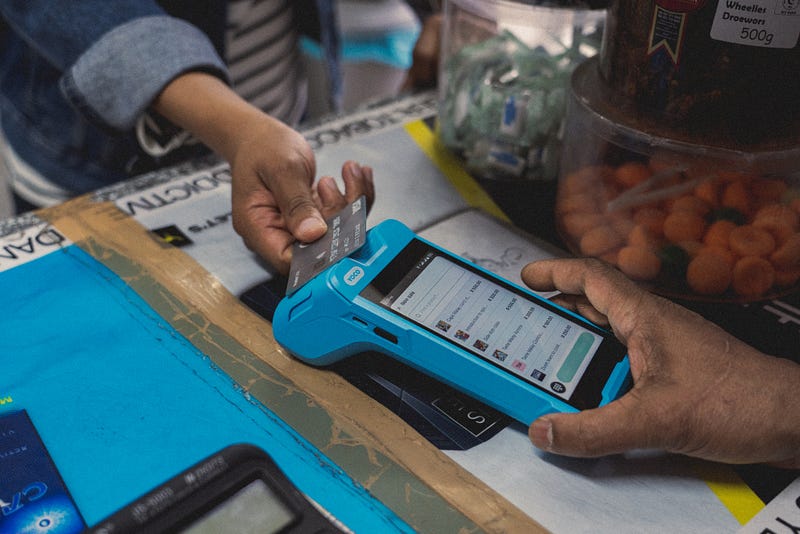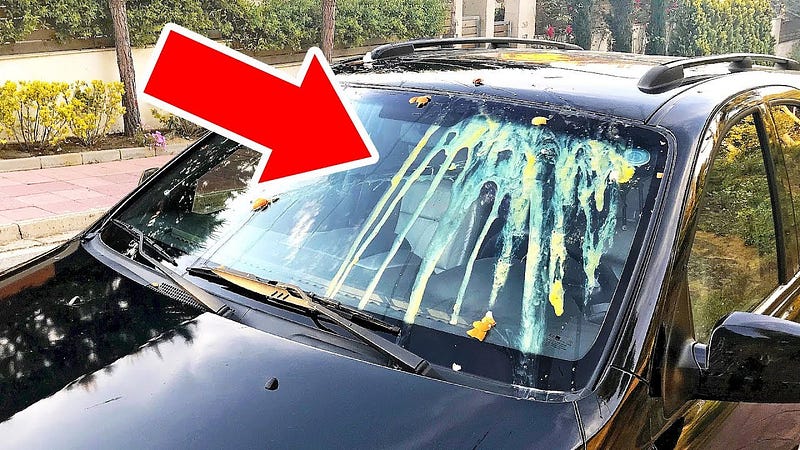Scam Methods: How Brazilian Criminals Are Getting Creative to Steal From You
I recently wrote an article about the mind-blowing tourist scam methods we can find in Europe. It contains the things I learned after visiting over 30 countries on the continent.
I thought the article would be helpful, or at least amusing, for anyone interested in how criminals can be creative here on the Old Continent.
Curiously, however, I received some harsh comments from people who thought I was unfair to Europe. Why don’t you write about scams in the US? You sound like a bitter American!
Or this one below:

Here is the truth: I cannot write about the US (in this matter) because I have never been there and I have little knowledge about the strategies used by thieves there.
But to satiate the thirst for more unusual methods used by lawbreakers, I can write about the country where I was born and lived for more than two decades: Brazil.
Because, oh boy, there are plenty of criminals there (and some decent people too, don’t take me wrong).
This could be material for an entire book, but here I separated the most absurd (but still effective) methods used by scammers, thieves, and robbers in Brazil.
We also wrote two other articles that anyone interested about Brazil and safety should read:
- Is São Paulo Safe? PS: Most People Answer It Wrong.
- The reality about safety in Rio is not what you imagine.
Trigger alert: if you were a victim of a robbery or burglary, the stories below may trigger undesired emotional responses (although they are not graphic in nature and there are no violent pictures), so you should stop reading here.
Ps: Check also our Youtube channel.
AI-Powered Fake Kidnappings
At this point, most of us are familiar with the possibilities (and menaces) opened by the rapidly advancing capabilities of artificial intelligence.
Not long ago, the entire world was lured to believe that Pope Francis was wearing a white puffer rapper-style coat because of an image produced by AI.
Scammers learned how to use AI to make their scam methods more effective too, probably inspired by occurrences in the US that shocked even the FBI.
Criminals train DeepFake tools by uploading samples of the voices of their potential victims.
They do that by using things that the victim herself uploaded on the internet: videos from Instagram reels, YouTube, TikTok, and so on. Whatever contains the victim’s voice is useful to train the Deepfake program.
Later on, they call any close relative of the victim and use the voice synthesized by the Deepfake software.
They tell this relative that he or she (the victim) suffered an accident, is lost far away from home, or even was kidnapped, lost his or her phone and is calling from a passerby, and needs a bank transfer immediately to not be in serious trouble.
Since the voice is extremely similar, relatives often fall for the scam and transfer the money to the scammer’s account.
The only way to avoid this is to doubt anyone calling from a strange number, but this may result in false negatives, meaning that when a relative really lost his phone and needs help, you will not believe him.
Curious fact: many of the gangs that execute fake kidnappings operate from jails. It is not uncommon for criminal organizations to operate entire schemes from inside penitentiaries, like in the picture below, made in the CDP So Vicente penitentiary.

The Selfless Photographer
Imagine that you are in places like Ibirapuera Park in São Paulo, a beach promenade in Rio, or the Pampulha area in Belo Horizonte.
These places are gorgeous, and you are also looking neat, so it is the perfect background for a new photo for your Instagram or whatever social media kids are using these days.

A selfie would look weird since you would need to cut your arm or your head would be too close to the lens, so you decide to ask a well-dressed, good-looking passerby.
He smiles back and says that is no problem; he can take a picture of you, so you give him your new iPhone.
He takes one picture, but then asks you to go a few steps back so as not to cut your legs from the picture and fit better into the scenic background.
“Smile!” he says.
Then, suddenly, he turns and runs away.
The place is crowded, and you shout for help, just in time to see him turning the corner and jumping onto a motorcycle where his partner already waits for him.
Goodbye, iPhone. Just a selfie would be a better idea.
The Fake Police Officer — A Variation of the Selfless Photographer
If, in the crime described above, the criminal passively waits in a tourist hotspot until someone asks him to take a picture, in this scam method the thieves are more active.
They dress like police officers. and ask tourists (often foreigners) to show them their documents, and later to inspect their bags to look for things like narcotics.
Once you hand them your valuables, they just run to their vehicle, and… it’s gone.
To avoid this, remember that the police often ask to see only ID documents (like your passport). If they want to inspect your bag or something like that, it is your right to ask for their badge and credentials.
ATM or Credit Card POS Skimming

ATM Skimming is a common crime in Brazil, and it frequently occurs at gas stations.
Criminals install skimming devices on ATMs and credit card POS machines to steal personal information, such as credit card numbers and PINs, from unsuspecting victims.
The skimming devices are designed to look like normal card readers, making them difficult to spot.
When a victim uses the ATM or POS machine, the skimming device records their card information. Later, they clone your card and make multiple purchases using your credit card and bank data.
To avoid falling victim to ATM skimming, it is important to be vigilant when using ATMs or POS machines, especially those located at gas stations. Look for any signs of tampering or suspicious devices attached to the machine.
If you suspect that a machine has been tampered with, do not use it.
One effective method to protect yourself against ATM skimming is to purposefully enter the wrong PIN on the first attempt.
If the credit card machine or POS accepts the wrong password, it means that the machine has been skimmed. In this case, it is best to leave the place and report the incident to the police and your bank immediately.
Unusual Methods Used By (Often) Armed Criminals
The Good Samaritan
This is a common scam in Brazil, where criminals take advantage of the kindness of strangers to steal from them or rob them.
The scam involves a criminal pretending to be in distress or danger, and the victim offers to help. Once the victim stops to offer assistance, the criminal either robs the victim or distracts them while an accomplice robs them.
One variation of this scam involves a criminal pretending to be a stranded driver with a flat tire. The victim offers to help, but while the victim is changing the tire, the criminal steals their belongings from their car or distracts them while an accomplice steals their belongings.
Another variation of this scam involves a criminal pretending to be injured or sick on the street. The victim offers to help, but while they are distracted, the criminal steals their belongings or pickpockets them.
To avoid falling victim to the Good Samaritan Scam, it is best to be cautious when approached by strangers and not stop to offer assistance unless it is in a safe and public area.
Egg in Your Windshield

You are driving on some of the avenues in cities like Rio or Sao Paulo that pass below multiple bridges.
Suddenly, after passing below one of the bridges, something hits your windshield, and a giant yellow stain similar to egg yolk partially blocks your vision.
Here is the thing:
Do not use the windshield wiper!
Do not use the windshield water fluid!
Because if you do, the egg yolk and water will form a viscous substance, such as milk, and you will need to stop as it will block your vision by about 90%.
If your vision is not totally blocked, just keep driving without using the water fluid or the windshield wiper. By doing that, you will gain distance from the criminals and can stop at a safe, illuminated place.
Some people say that this crime is a hoax, but if that is the case, it is a hoax only until some bandits use it for the first time.
Paper on Your Rear Windshield
Imagine you go to your nicely parked car, open the door, get in, lock the doors, and start the engine.
The same stuff you do all the time
But when you look in the inside rearview mirror, you see a piece of paper on the rear window that blocks your view.
So, after cursing whoever stuck a goddamn ad on your back window, you put the car in neutral, put the handbrake on, open the door, and get out of the car to remove the damn paper or whatever it is there.
When you get to the back, a robber appears out of nowhere, points a gun at you, and takes your car with the key in the ignition, the engine running (if it has a blocker, it will already be unlocked anyway), your wallet, documents, and whatever else is in the car.
So, don’t get out of the car if something is in the way of your view.
You can safely start your car by using the outside rearview mirrors and then get out at a different stop further ahead.

The Valet
You are having a good time with your friends or family at a restaurant or bar where you are all laughing together.
Then, all of a sudden, a person arrives, saying that he is the valet of a nearby private parking lot or garage.
He inquires as to who owns a particular car that has a certain license plate and is parked on a certain street nearby.
The valet requests that the owner of the vehicle go outside and move it so that another vehicle can more easily exit the parking space.
You, who are very helpful, go, and when you get to your car, some other men appear, and the group announces the robbery, taking away your car and your belongings.
The solution for that is to park only in authorized places where you are clearly not blocking anyone. If the fake valet appears, tell him that you don’t know who the car owner is and call the police.
What other unusual methods do criminals use in your country? Were you familiar with any of the strategies mentioned above? Tell us in the comment section!
The Expat Consultancy Safety Guides
My team wrote some guides to help you keep safe, avoid tourist scams, choose the best districts, and avoid the worst neighborhoods. Here are some of them:
- Athens, Greece
- Belgrade, Serbia
- Berlin, Germany
- Munich, Germany
- Copenhagen, Denmark
- Dublin, Ireland
- Edinburgh, Scotland
- Glasgow, Scotland
- Lisbon, Portugal
- Madrid, Spain (We also wrote a guide with tips on immigrating to Spain)
- Manchester, England
- Milan, Italy
- Rome, Italy

What More You Need to Know About Scams
1. What are the most common types of scams and how can I recognize them?
The most common scam types include phishing emails, fake websites, phone and text message scams, government agency impersonation, subscription traps, and gift cards scams. Recognizing these scams involves being cautious of unsolicited requests for personal information, checking the legitimacy of websites and emails, examining caller ID details, and being skeptical of offers that seem too good to be true.
2. What methods do scammers use to obtain my personal information?
Scammers use a variety of methods to obtain your personal data. These include phishing emails, malware, fake websites that mimic legitimate ones, phone calls with spoofed caller ID information, and social security number theft, among others. They often use emotional manipulation or scare tactics to get victims to reveal sensitive information.
3. How can I protect myself from scam calls and emails?
The best way to protect yourself from scam calls and emails is to never provide your personal information or online payment details to unknown sources. Be cautious of unsolicited calls or emails, especially if they ask for sensitive information. Verify the contact information of any government agency or business before sharing any information and don’t rely on caller ID alone, as it can be spoofed.
4. Should I send money or provide account details to people I don’t know and trust?
No, you should never send money or provide your account, bank’s, or site’s details to people you don’t know and trust. Scammers often create fake profiles or impersonate someone you know to trick you into sending money or revealing financial details that can be used by scammers for identity theft or other illegal activities.
If you enjoyed this article about scam methods, here are a few other travel tips and reading suggestions for you:
The 7 Countries With The Worst Work-Life Balance in The OECD
The Best Cities for Remote Workers in 2023
Levi Borba is the founder of The Expatriate Consultancy, creator of the channel The Expat, and best-selling author. Some of the links in this article may be affiliate links, meaning that the author will have a commission for any transactions




